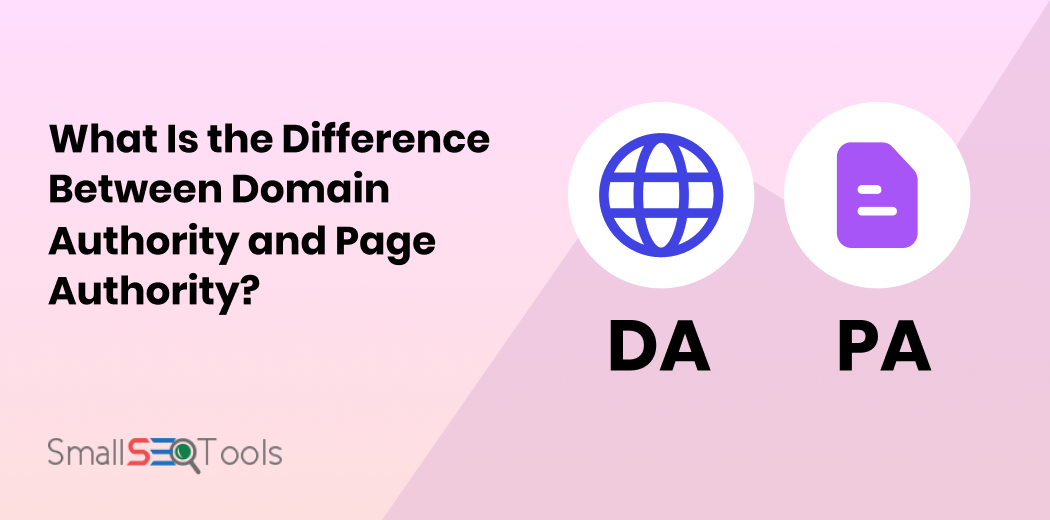FREE Tools that Generate Keywords

As you may know, Small SEO Tools is an inventory of incredibly helpful SEO tools.
What we do is to create these digital marketing tools and then put them here on our website so that anyone on the Internet can use those for completely free. This is our mission and we've been on it since September 2010.
In recent times, we've updated some of our tools and also added new ones. And so today, we want to bring some of those to your attention. Particularly, we want to highlight some of our best tools for performing effective keyword research, to find and optimize keywords that can drive loads of traffic to your website right now.
But hey, why is keyword research a thing? What makes it tick? Let's talk about that first.
WHY KEYWORD RESEARCH MATTERS
Statistics reveal that more than half of the world population (53%) are now active on the Internet, as at the beginning of 2018.
That is a HUGE 4+ billion people.
With this, the Internet has become the single biggest channel for reaching people today globally. Just the thought that you can reach this many people through the Internet is amazing. Only thing necessary? Make your content available to them.
Now, comparing this data with that of cable television gives you a clearer picture of how magnificent the Internet has become. In the United States, Netflix alone surpassed cable television in terms of reach in early 2017, reaching over 50 million people. Cable networks only managed to reach 48.61 million.
Netflix is just one Internet service. Imagine what the numbers will look like if we add other web-based video-on-demand services like Amazon Prime and Hulu, not to mention YouTube.
What are we driving at here? It's simple; we are trying to show you that the Internet has become very big and important. As a result, digital marketing has become increasingly vital, making many people use it for their business.
Sure, one reason for the wide acceptance of digital marketing is that digital marketing strategies are very cost-effective for small businesses, compared to the more traditional ones like radio, billboards, newspapers, etc…
…but much more than that, it is also the result of the general growth of the Internet.
Digital marketing has also diversified into several different areas. Have a look at this digital marketing tree…
And this graph…
The diagrams show some of the most popular Internet marketing practices including SEO, content marketing, social media, paid advertising, email marketing, etc. Now, keyword research isn’t just about SEO. Keyword research is actually the foundation of all of these other digital marketing practices.
In other words, keyword research is about the whole of digital marketing and yes, it's about using the Internet. It is fundamental to almost everything you do online.
From searching for information on Google or YouTube to creating content for your market; from social media marketing to paid advertising, both consumers, marketers, and search engines depend on keywords to use the Internet.
Think about it:
Without keywords, the web would be without a direction. While people will not be able to find what they are looking for when they want to see it, businesses won't be able to optimize their offerings to show to the market they would like to sell to.
That's why keywords are important.
They determine what your company is known for, where organic search traffic comes from, and the best content to create for that market. 70% of Internet users want to learn about products through content instead of traditional advertising. And the way they do that is to key appropriate keywords into search engines.
If you don't optimize for keywords, you can’t bring about the traffic, sales, and ultimately the revenue you want. So to help your business, you just must be doing keyword research. In a November 2016 survey, Ascend2 found that keyword research was one of the top SEO tactics. However, more than a third of respondents indicated that it was a difficult task:
But here's the good news:
With the right keyword research tools, things can be a lot smoother for you.
Using the right keyword research tools not only makes your work easier, it also allows you to determine the most profitable search terms to create content around and optimize your website for… which ultimately determines the kind of traffic you attract and what you get from them. Below are some of our best keyword tools for generating search terms that people are searching for on the web even now.
USEFUL KEYWORD TOOLS BY SMALL SEO TOOLS
1. Keywords Suggestions Tool
Keyword suggestions are an essential activity in keyword research. Relying solely on traditional seed keywords won't cut it.
You need an established system with which you can generate a constant stream of keyword suggestions to combine with your seed keywords. Having relevant keywords generated for you automatically from a reliable source saves you time and effort, and enables you to target more germane search terms. It also helps you increase your marketing returns on investment (ROI).
Industry reports find that for every $1 spent on keyword ads, you get about $17, which is a pretty good ROI.

This is important as around 40% of marketers say proving the ROI of their marketing activities is a real challenge, according to Hubspot Research.

Keyword Suggestion Tool from Small SEO Tools offers you an endless stream of highly relevant, traffic-driving keyword suggestions. All you have to do is enter a seed keyword and choose the country where you want to based your search on.
Our free Keyword Suggestion Tool will tap from our industry-leading database of billions of keywords to provide you with a list of suggested keywords for the seed keyword you entered. With these, you can expect an extensive, unique, and actionable keyword suggestions for free to grow your search traffic and expand your reach.
2. Keyword Density Checker
If you're going to rank on search engines like Google, there are rules and there are best practices. And you'd have to follow them accordingly to stand any chance of winning.
One such practice is keeping an eye on the percentage of times a keyword is mentioned in your content. Too much repetition of the same keyword can lead to unpleasant things. It's called “keyword stuffing” and Google hates it. They'll punish your webpage if it stuffs keywords.

We often advise our users to keep their text natural with keywords. But how do you start calculating the number of times a keyword appears on your piece of content of several pages?
Well, that's where you need a keyword density tool.
The SST’s Keyword Density Checker is a truly valuable keyword tool for checking the keyword density of any piece of content, whether published or yet to be published.

But much more than that, the tool goes beyond simply calculating keyword density. It actually checks for and analyzes ALL the top keywords used on your text, and shows you super useful metrics for better SEO performance and effective content optimization. (We already described these metrics in the Keyword Density Checker page).
3. Keyword Position Checker
What are your primary keywords and what positions do your website currently hold for those keywords on Google?

If you don't know the answer to those questions, then it could be said that you are not taking your SEO as seriously as you actually should. Keyword position refers to the rung where a certain website ranks on Google for a certain keyword.
We're sure you want your website to rank on (at least) the top 3 positions on Google for your most valuable keywords.

To achieve this, you need to know who's positioned where for your top keywords. And that you can do with our Keyword Position Checker.
Keyword Position Checker from SST is a tool that tells you a website’s place on the big G based on specific search terms, relative to how other websites rank for the same keyword.
By checking and knowing the positions your site hold on Google, you'll be better equipped with the right information to take your site up to your desired rank.
4. Long Tail Keyword Suggestion Tool
A long-tail keyword is any search term that contains at least three words (it could be two or longer but never one according to some SEOs).
Generally, long-tail keywords are used to target niche demographics rather than mass audiences. Which means, they're more specific. Also, long-tail keywords are often less competitive than generic keyword terms.

What makes long-tail keywords so important is that you can drive a very specific audience with them, which in turn converts better than short-tail keywords. It even gets better if you target a barrel of them.
Long-tail keywords are the foundation of an effective SEO strategy. In fact, they account for 70% of all web searches.

Our Long Tail Keyword Suggestion Tool allows you to generate specific, less competitive search terms that your target audience is searching for on Google right now. These keywords are created for specific user intent, meaning your most valuable users will find you fast.
Also, using long-tail keywords, you can easily outrank the competition.
Another point is that long-tail keywords don't just strengthen your SEO and CRO efforts. They ensure that your pages actually provide real value to your readers. This is what Google, Bing, and other search engines are ultimately looking for.
Long Tail Keyword Suggestion Tool »»
5. SEO Keyword Competition Analysis Tool
In Internet marketing, sometimes there are just so many keywords to target. And so we often find ourselves going for one more keyword to expand our reach. When targeting new keywords, it's often intelligent to not ignore the fact that valuable keywords have a bunch of competition around them.

To meet your marketing goals fast, it is better to assess the market competition for top keywords before you decide to target them. The most efficient way to do this is to use an SEO competitor keyword analysis tool.
This tool helps in identifying the difficult level surrounding a particular keyword. That is, it measures the competition around the keyword and how much time and effort the keyword will require to achieving high ranking.

Our SEO Keyword Competition Analysis Tool provides accurate and in-depth evaluation of your website against the website of your rivals for a particular keyword. It gives you the SERP analysis report on the first page in search engines, especially Google.
SEO Keyword Competition Analysis Tool »»
TIPS FOR EFFECTIVE KEYWORD RESEARCH
1. Put Keywords in the Right Places
One keyword mistake a lot of marketers make is placing their keywords in a limited manner, only within the body of their content.

While you should definitely put keywords in the body of your blog posts, there are several other places within your webpage that if you add keywords on, will give you much better results.
Here are such places:
-
Meta titles
-
Descriptions
-
Headings (H1, H2, H3…)
-
Image alt
-
Permalinks, etc.
Also, putting keywords towards the front of the copy (maybe on the first sentence or paragraph of your post) as well as towards the end can be helpful.
For pages, don't just optimize the homepage. Every page on your website is an opportunity for optimization.
2. Get Keyword “Intelligence” from Your Site Users
About 30% of your website visitors will use your on-site search function to find answers.
The smart thing to do?
Study the on-site search queries made by your users to get valuable keyword ideas from them. Those on-site searches are a gold mine of data just waiting to be looted. They reveal the very information your core users are looking for.

Remember, this time it is not on the general Google Search; it is on your website, which makes it customized.
The searches are coming from the heart of your readers who are already engaged with your content and offerings. Using those ideas to create new pages and blog posts answers their questions and convert more easily.
3. Keywords Aren't Just for Your Website
Don't make the mistake of ignoring other valuable places you can optimize to convert visitors. Apart from your website and blog, these places below are equally strategic:
-
YouTube description box: Whenever you upload a new video on YouTube, always remember to write a useful description, with specific keywords in it. Links in the description box also get clicked a lot, which makes it a very good place to convert users. You can even go back to your old videos that are receiving impressive number of views to take advantage.
-
App descriptions: Both Google Play Store and Apple App Store provide app publishers with spaces for both short and long app descriptions. Those are opportunities for you to further optimize for the keywords you care about. Both platforms let you add up to 4,000 characters, which translate into a whole page on its own.
-
Social media pages/profiles: What most people don't know is that social media sites like Facebook, Twitter, and LinkedIn are HUGE search engines in their own rights. People search for all kinds of stuff on there every time — products, services, information, companies, etc. You'll only be smart to optimize your pages and profiles (as well as your posts) with your target keywords to show up for those queries. On LinkedIn alone for instance, millions of B2B businesses are getting discovered by potential customers every day because they've done the needful.

These are just a few other places that matter for keyword optimization other than your website. Paid ads also come in here, but you get the point, right?
LET'S WRAP UP…
Keywords are extremely important. It's not just enough to create content. You need to generate strategic keywords and place the same where it matters the most within your content and other marketing collaterals. Companies that perform effectively online always have the right keyword strategy. To win, you need to do the same.
Start with making the best use of the tools we've shown you. Of course, these are NOT all the tools we run here at SmallSEOTools.com. These aren't even all the “keyword tools” we have. We only picked these ones as a point of reference to show you what you can do.
To see the other of our tools, including other keyword research tools, simply go to the SST homepage. If you found this guide to be helpful, we will appreciate it if you give us a feedback as to what you think about our free SEO tools.
We will also appreciate it if you share this content with relevant people who might benefit from using the tools we provide. Simply click on the share button on this page. Thanks for your time and happy optimization!











